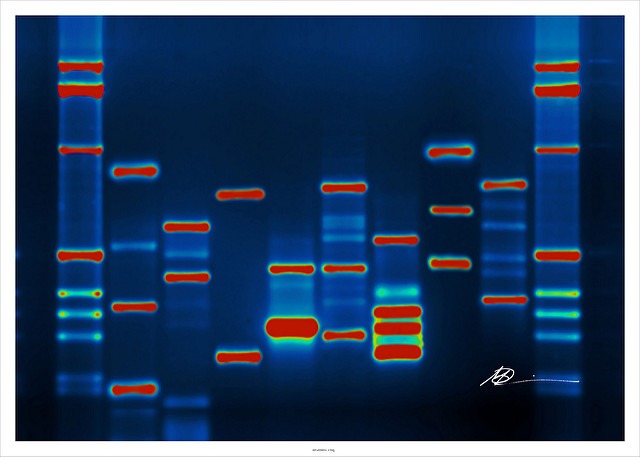
GM/Biotech Crops Report – May 2018
8th May 2018- GM/Biotech Crops Monthly Reports (BELOW) form part of BCPC’s free three-tier Biotech Crops Info service.
- This service also includes a weekly round-up of news from around the globe – see BCPC Newslink GM Crops section.
- Plus – Free access database on over 300 GM/biotech products covering 23 crops in the global market visit BCPC’s GM/Biotech Crops Manual – Register here for free access.
Already registered? Click here
GM/Biotech Crops Monthly Report May 2018
 | Hand-held DNA sequencer for $500 Sequencing DNA on the spot will revolutionise health care, disease identification in crops, food provenance and much much more. A firm in Oxford (Oxford Nanopore) now has the technology and the machine to do it. Their hand-held reader can sequence DNA in minutes. More Pic: Micah Baldwin |
|---|---|
| CRISPR editing does not a GM crop make… … at least in America where the USDA has decided that genome editing is simply a faster way of achieving what could be achieved by traditional breeding and that varieties produced by this technique to not warrant special scrutiny or approval. More Pic Source: Bioscience for Farming | 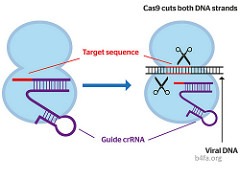 |
 | UK public optimistic about GM technology The Royal society has commissioned a survey of public opinion and found that more people are ‘cautiously optimistic’ about genetic engineering developments than those that expressed concerns. More Pic: Yvonne Rafferty |
| Australian vine helps soybean yields climb Soybean has a very narrow genetic base and crossing it with the Australian vine Glycine tormentella has increased the genetic variability with some of the new lines showing good resistance to rust and increases in yield potential. More Pic Source: United Soybean Board |  |
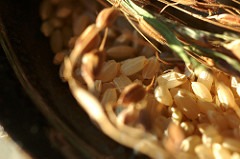 | Gene replacement therapy for rice Chinese scientists have successfully replaced an allele in rice with a better version using CRISPR-Cas9 editing. This has allowed the transfer of improved nitrogen utilisation between ‘indica’ and ‘japonica’ rice varieties. More Pic: M-Louis |
| Brewer’s yeast used for cough suppression Noscapine is a cough suppression treatment that does not make you drowsy. It has been used since the 1930’s and is currently extracted from 100’s of tonnes of opium poppies. Now a team at Stamford University in America have managed to edit the genes of brewer’s yeast to produce noscapine in just a few days rather than the months it takes to grow the poppies and by tweaking the edited genes they achieved an 18,000-fold increase in output! More Pic: Mylissa |  |
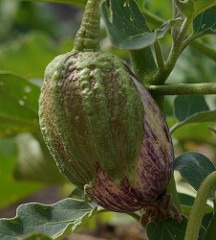 | Opposing views on GMOs aired in a Dutch documentary A film about the pros and cons has been made centred on the effects of GM crops grown in places like Bangladesh where growers use Bt eggplants to reduce their exposure to toxic insecticides. The Dutch film with English sub-titles can be viewed here: More Pic: Mike Lewinski |
| Pests fight back with GM engineering of their own Cotton bollworm has an extensive range whereas Corn earworm, although from the same genus, has a more restricted distribution. However, hybrids of these two distinct pests have now been identified in Brazil and the hybrids have been labelled a ‘Mega-Pest’ due to the threats that it poses. More Source: Jimmy Smith | 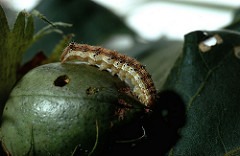 |
 | A greener fuel for cars Researchers at Singapore University have identified a bacterium found in mushroom compost that can convert cellulose to biobutanol which can be used as a replacement for petrol. I wonder what the octane rating is? More Pic: Samuel King Jr |
| . |
| Lycopene-enhanced tomatoes Lycopene found in tomatoes is a powerful anti-oxidant and promotes healthy hearts. Now a team at the Chinese Agricultural University has achieved a five-fold increase in lycopene content of some lines simply by a little CRISPR-Cas9 editing. They confirm that the change is stable and is passed on to succeeding generations. More Source: magdda | . |
 | More on tomatoes Darwin may have missed it but researchers from Wageningen University have found a wild relative of the tomato growing in the Galapagos Islands. Cultivated tomatoes are prey to many insect pests but this wild relative appears to have a resistance to many of them and cross-breeding this resistance into cultivated lines is expected to be relatively easy. More Pic Source: pantxorama |
THE LATEST ADDITIONS TO THE GM/BIOTECH DATABASE ARE:
- CTB141175 – Sugarcane with Lepidopteran insect resistance now approved for food use in Canada.
FOR INSTANT ACCESS TO GM BIOTECH MANUAL CLICK HERE (Registration required)
Already Registered? Click here to access

